Why Are Petrochemicals Important? The Role of the Petrochemical Industry in the US Economy
Throughout the years, the petrochemical industry has developed a negative reputation. However, you shouldn’t believe everything the media tells you. So why are petrochemicals important and how do they affect the US economy?
In reality, the petrochemical industry is one of the most beneficial things in our lives. They’re responsible for creating many of the items we use every day. But most importantly, the petrochemical industry plays a huge role in benefiting the United States economy.
Here’s how the petrochemical industry plays a role in the US economy.
Contributions to the US Economy
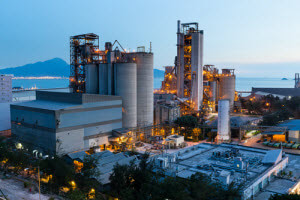 With the industry’s vital role in energy supply and increasing energy demands, the petrochemical industry has becoming one of the fastest-growing industries in the United States. In fact, according to a report by the American Petroleum Institute (API), the petrochemical industry’s success has provided the country with great economic contributions.
With the industry’s vital role in energy supply and increasing energy demands, the petrochemical industry has becoming one of the fastest-growing industries in the United States. In fact, according to a report by the American Petroleum Institute (API), the petrochemical industry’s success has provided the country with great economic contributions.
The reports states that the industry supports about $1 trillion in total value added to the economy. This represents 7.3% of US gross domestic product (GDP).
In addition, oil and natural gas companies are paying more taxes and fees than other manufacturing companies. The industry has paid the US government an average of $86 million a day in income taxes and production fees, which totals to more than $110 billion since 2000.
Export and Trade
According to a report by the API, the United States became a net exporter of petroleum in 2011 with help from investments. Since then, the oil and petrochemical industry has greatly benefited the United States economy. For example, the report states that industry exports in 2011 provided the country with about $111 billion.
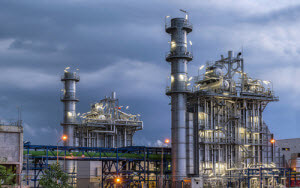 On top of that, another report by the US Department of Commerce’s Economic and Statistics Administration showed that since the country became a net exporter, the United States trade surplus was worth about $4.2 billion.
On top of that, another report by the US Department of Commerce’s Economic and Statistics Administration showed that since the country became a net exporter, the United States trade surplus was worth about $4.2 billion.
Increased Job Creation
Most importantly, the petrochemical industry has worked increase job opportunities across the country.
Petrochemicals are used to create most of the everyday items we use. From vehicles to a variety of electronics, almost all of the things we use today are powered by or made of petrochemicals. Increasing product demands have led to the creation of more refineries and plants and thus the creation of more jobs.
In fact, according to the API, “The oil and natural gas industry is the backbone of the American economy.” The industry creates and supports more than 9 million American jobs.
On top of that, the petrochemical industry is expected to becoming the leading industry in job creation. It’s predicted to create about 700,000 jobs by 2030. Plus additional offshore opportunities may result in 100,000 new jobs in Florida by the end of the year.
All of these new job opportunities will lead to increased government revenue. It’s predicted that the petrochemical industry could add up to $171 billion to the United States revenue by 2030.
Why Are Petrochemicals Important?
There has been a slew of negative media surrounding the petrochemical industry. But regardless of what everyone is saying, the petrochemical industry will play a huge role in benefiting the United States economy now and for years to come.
Learn more about the growing petrochemical industry.

 As stated, the oil tanker industry is booming, and the WSJ article reports that some international fleets are expected to add more than 200 new tankers by 2017. About 40% of those vessels will be very large crude carriers, or VLCCs, the largest class of tankers.
As stated, the oil tanker industry is booming, and the WSJ article reports that some international fleets are expected to add more than 200 new tankers by 2017. About 40% of those vessels will be very large crude carriers, or VLCCs, the largest class of tankers. Oil prices are back on the rise, and many are trying to keep it that way. But it isn’t to ensure revenue; it’s to decrease the global oversupply of oil. As mentioned, companies are considering halting operations and productions to help to maintain higher oil prices to reduce production and prevent excess.
Oil prices are back on the rise, and many are trying to keep it that way. But it isn’t to ensure revenue; it’s to decrease the global oversupply of oil. As mentioned, companies are considering halting operations and productions to help to maintain higher oil prices to reduce production and prevent excess. Helium is the second most abundant element in the universe. However, most of it exists up in the stars. The earth’s crust does emit some helium, but it’s extremely light and rises into the atmosphere, making it quite difficult to harvest. This is one of the biggest reasons there’s a helium shortage.
Helium is the second most abundant element in the universe. However, most of it exists up in the stars. The earth’s crust does emit some helium, but it’s extremely light and rises into the atmosphere, making it quite difficult to harvest. This is one of the biggest reasons there’s a helium shortage. However, Air Products has introduced a new technology that will revolutionize helium production. Instead of relying on methane, the company uses naturally occurring gas composed mostly of carbon dioxide, which contains high concentrations of helium.
However, Air Products has introduced a new technology that will revolutionize helium production. Instead of relying on methane, the company uses naturally occurring gas composed mostly of carbon dioxide, which contains high concentrations of helium.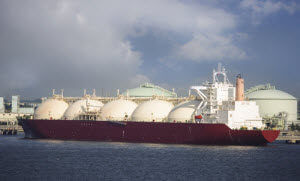 Industry experts have mixed views about this new means of production. To help you understand why, here are some of the benefits and limitations of floating LNG production processing and storage ships.
Industry experts have mixed views about this new means of production. To help you understand why, here are some of the benefits and limitations of floating LNG production processing and storage ships. On top of that, floating LNG plants can provide economic benefits across the world. Additional business opportunities will provide more chances for other countries to develop stranded offshore gas fields in their respective areas.
On top of that, floating LNG plants can provide economic benefits across the world. Additional business opportunities will provide more chances for other countries to develop stranded offshore gas fields in their respective areas. The 2016 Fugitive Emissions Summit Americas was designed to help the industry better comply with the rules and regulations set by the Environmental Protection Agency (EPA). During the expo and conference, experts from Tesoro, United Valve, and many more organizations held workshops, plenaries, and short educational lectures to help many control fugitive emissions.
The 2016 Fugitive Emissions Summit Americas was designed to help the industry better comply with the rules and regulations set by the Environmental Protection Agency (EPA). During the expo and conference, experts from Tesoro, United Valve, and many more organizations held workshops, plenaries, and short educational lectures to help many control fugitive emissions. The event also focused heavily on leak detection and repair (LDAR) programs and how current regulations affect all industries and what they can do to meet these guidelines downstream or upstream.
The event also focused heavily on leak detection and repair (LDAR) programs and how current regulations affect all industries and what they can do to meet these guidelines downstream or upstream.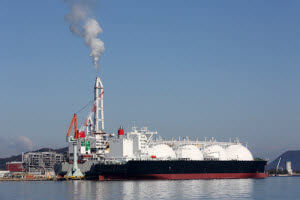 Liquefied natural gases
Liquefied natural gases LNG is considered a cryogen and must be kept at very low temperatures to maintain its liquid state. Cryogenic equipment works to maintain the temperature during storage and transportation if the pressure remains constant inside.
LNG is considered a cryogen and must be kept at very low temperatures to maintain its liquid state. Cryogenic equipment works to maintain the temperature during storage and transportation if the pressure remains constant inside. The EPA’s new rules will target both new and existing sources in the gas and oil industries. They will finalize a set of standards that will help to reduce a number of harmful pollutant emissions, especially methane, in new, modified, or reconstructed sources.
The EPA’s new rules will target both new and existing sources in the gas and oil industries. They will finalize a set of standards that will help to reduce a number of harmful pollutant emissions, especially methane, in new, modified, or reconstructed sources.
 Natural gas is a mixture of methane and other hydrocarbons. It makes up about a quarter of the energy used in the United States and is commonly used for home, commercial, and electric power production purposes. In its purest form, natural gas is colorless, odorless, and shapeless.
Natural gas is a mixture of methane and other hydrocarbons. It makes up about a quarter of the energy used in the United States and is commonly used for home, commercial, and electric power production purposes. In its purest form, natural gas is colorless, odorless, and shapeless.
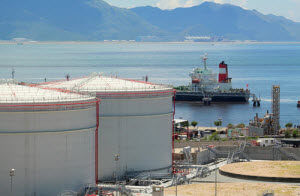 North America and China are predicted to produce the majority of the surplus of plastics in the coming years.
North America and China are predicted to produce the majority of the surplus of plastics in the coming years.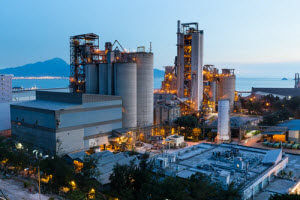 The IHS report also states that the surplus of plastics can have negative effects on the global petrochemical industry. “The U.S. and China are now competing with the Middle East for global PE/PP market share which should have significant impact on pricing and margins,” Vafiadis said.
The IHS report also states that the surplus of plastics can have negative effects on the global petrochemical industry. “The U.S. and China are now competing with the Middle East for global PE/PP market share which should have significant impact on pricing and margins,” Vafiadis said.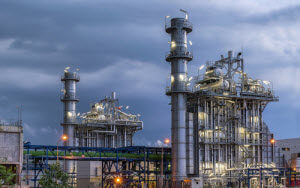 According to
According to  Pryor also mentions that the shortage of skilled technical workers would be a definite hurdle the industry must overcome in the future.
Pryor also mentions that the shortage of skilled technical workers would be a definite hurdle the industry must overcome in the future.